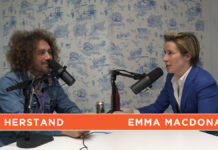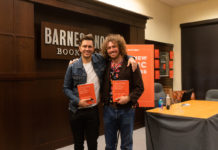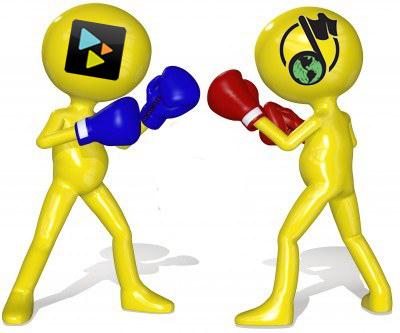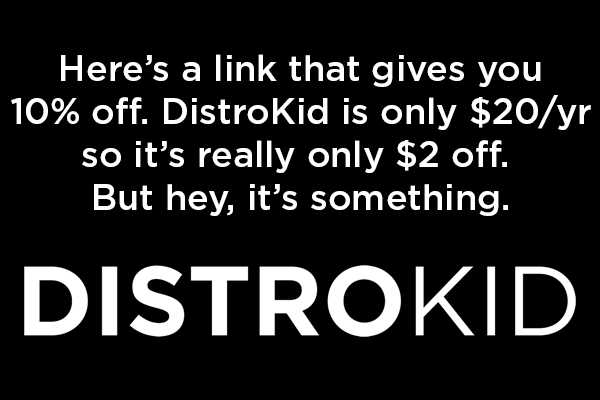DISCLAIMER – This is NOT a post about CD Baby or Tunecore’s distribution services. This is strictly about their admin publishing services. HOWEVER I did a full report on their distribution services here. Read on to learn about music publishing and compare services.
This report was updated on 6/4/14
So far Tunecore has racked up nearly 22,000 songwriters to their service with 286,000 compositions . CD Baby Pro has over 54,000 songwriters with a catalog of 246,000 songs (updated 2/20/15).
Many have asked me what’s the better service. What’s the difference in the two? WHICH SHOULD I SIGN UP FOR (if either)?
I have spent weeks and countless hours delving into both of these companies and learning as much about them as I possibly can. I’m well versed in music publishing, so I understand the fine print.
After my research, I still had a bunch of questions for both companies that I couldn’t find in their FAQs (or terms of service). I sat down with the president of Tunecore Publishing, Jamie Purpora, (no longer at the company as of 1-1-15) and the head of marketing at CD Baby, Kevin Breuner, to discuss their services in detail. You’re asking why didn’t I sit down with the president of CD Baby Pro also? More on that later (hint: there isn’t one).
I’m not posting our entire hour+ long conversations, but just summarizing the most important points for each service and picking a winner for each point.
Music publishing is a very elusive part of the music industry and most musicians, record company execs, managers and bookers can go their entire careers without knowing anything about it. I’m going to try to explain, in simple, Ari (non-lawyer) terms, what each point means. Then I’ll compare the two services.
**Full disclosure: I have used both CD Baby and Tunecore services in the past. I have written for both of their blogs (diymusician.cdbaby.com and blog.tunecore.com). I am attempting to be as unbiased as possible.
Definitions and some things you need to understand about publishing first:
Publishing splits: For every song, there is a writer’s cut (50%), split amongst everyone who wrote the song, and there is a publisher’s cut (50%). Because TuneCore Publishing and CD Baby Pro are acting as your publisher, they take their commission from the publisher’s cut (not the songwriter’s). More on this later.
**Rule to live by: you should never give any of your songwriter royalties to anyone who did not have a part in writing the song.
Performance Royalties: Anytime there is a “public performance” of your song, you are owed a royalty. Like when your song is on the radio, Pandora, Spotify radio, YouTube, TV, heard in JC Penny, Sirius/XM, from a jukebox in a bar, performed live at your concert, etc. You can see the full list of what ASCAP collect here. These royalties are currently collected by Performing Rights Organizations (see below).
Performing Rights Organizations (PROs): ASCAP, BMI, SESAC, SOCAN, etc. These are organizations that collect performance royalties (NOT mechanical royalties – see below). The way these PROs make money to pay songwriters their earned royalty money is PROs collect money from thousands of venues (radio stations, internet radio (like Pandora), JC Penny, bars, live venues, etc) by requiring them to purchase “blanket licenses” which gives these venues permission to play music in their establishment (or on the air). The PROs then pool all of this money up and divide it amongst all of their songwriters and publishers based on the frequency of each song’s public performance. The PROs then pay the publishing companies their 50% and the songwriters their 50%. Make sense?
You can only sign up for one PRO. You cannot be a member of ASCAP and BMI (in America). You have to choose. Find out what the PROs are in your country and pick one and sign up. (CBP and TCP will do this for you if you currently aren’t signed up for one).
Mechanical Royalties:
When someone buys your song (or streams it) you, the songwriter, is owed money. Spotify, Apple Music, Deezer and similar “interactive” (that means you pick the song) streaming services owe you mechanical royalties every time your song is streamed on their service. If someone wants to cover your song they must pay you 9.1 cents per unit (download, CD) AND a little (very complicated formula to calculate this) per stream in the US. Internationally, these rates are about the same. The Harry Fox Agency (HFA) Songfile, Loudr and Easy Song Licensing issues these licenses for most songs. Let’s say you want to cover Taylor Swift’s song “I Knew You Were Trouble.” You would go to Songfile.com, Loudr or Easy Song Licensing and search for the song. You could then estimate that you will sell 1000 downloads of this and pay $91 on the spot with a credit card. This gives you the “compulsory mechanical license” required to release your cover of “I Knew You Were Trouble.”
+How To Legally Release Cover Songs
Sync Licensing: When a TV show wants to use your song, the show pays you a Sync License fee and a Master Use License fee for the rights to use the recording. The Sync (stands for synchronization) fee is for the song and goes to the publisher and songwriter, the master use license fee is for the actual recording and goes to the person, band or label that owns the recording. Meaning, if your band records a cover of Taylor Swift’s “I Knew You Were Trouble,” and it gets on 2 Broke Girls, you would get money for the Master Use License and Taylor Swift (and her publishing company) would get money for the Sync License.
Sync License = composition
Master Use License = sound recording
From this airing on 2 Broke Girls, Taylor Swift’s PRO would collect performance royalties (from this “public performance”) and pay her and her publishing company. You would not get any performance royalties (but just the money up front from 2 Broke Girls for the Master Use License – because you didn’t write the song).
There are licensing pitch houses out there whose sole job is pitching songs to music supervisors for TV shows, movies, commercials, etc. Technically, no one is allowed to sync video to a song (get where the “sync” comes from?) unless they get permission from the songwriter (and the publishing company). SO, the music supervisor of 2 Broke Girls would need to get permission from Taylor Swift AND her publishing company AND you (for your recording) to use your version of her song on the show.
Admin Publishing: Both CD Baby Pro and TuneCore Publishing are acting as administrators to collect royalties for your songs. They are not full-on publishing companies. When you sign up with them you are signing an “Admin Publishing” deal.
Where Does SoundExchange Play Into All of This?
SoundExchange is a service (similar to PROs) that collects revenue for the master rights holders (record label or the band who recorded the song – YOU in our “I Knew You Were Trouble” example) from digital platforms for public performances of your recording (like satellite radio, Pandora, cable TV music channels, and streaming music). These royalties are for the artist who recorded the song NOT the songwriter. So if your Taylor Swift cover blows up, SoundExchange will pay you royalties and Taylor’s PRO will pay her royalties.
NOW LET’S BEGIN THE COMPARISON!
Who Can Signup:
TuneCore Publishing (TCP):
Any songwriter anywhere in the world can signup if they don’t currently have a publisher.
CD Baby Pro (CBP):
Currently only US, Canadian and UK songwriters can signup if they don’t currently have a publisher. **Updated 5-19-15

Who is doing the grunt work?
Who is making the phone calls? Setting up the international mechanical royalty (I’ll get to that) collection services? Working with the PROs and on and on. Specifically who?
TCP:
TCP has built up their own infrastructure so they are doing everything in house. Jamie Purpora has 20 years of experience in music publishing, first 17 years working at Bug Music Inc. (now BMG Music) and 3 years at Tunecore Publishing. He has assembled a team to handle all of the duties to have a successful admin publishing (and sync licensing) team in house.
CBP:
CBP outsources all admin publishing duties to SongTrust. The head of SongTrust is Justin Kalifowitz, who has also spent his life in music publishing. He started Downtown Music Publishing and SongTrust. SongTrust actually started as a similar service as CBP and TCP to help independent songwriters.
CBP also outsources their sync licensing (what’s sync licensing again?? – reference it above!) to Rumblefish, a service you can opt in to when you sign up for CD Baby Distribution.
WINNER: No clear winner here. I don’t really care that CBP outsources to a company who’s kickass at this already. I trust Jamie and Justin equally.
Sync Licensing
Who is getting your songs placed on TV, in film and commercials? Are there any restrictions if you want to work with an outside licensing company?
TCP:
Tunecore Publishing has a synch licensing department and last I checked there were about 5 people working there. However, with tens of thousands of songwriters signed up to the service and hundreds of thousands of songs there’s no way any of these people have actually listened to your music or is actively pitching it for placements. However, if someone comes to you (or TCP) directly and wants to use your music, Tunecore will help negotiate a synch license fee.
Tunecore, however, is EXCLUSIVE, in the sense, if you signup for Tunecore Publishing you are not allowed to work any other licensing company to pitch your music. Let me repeat, if you signup for Tunecore Publishing, you cannot work with another song plugging company (who may be really passionate about you) to pitch your music to TV shows, movies and commercials. This, for me, is a deal breaker. Deal. Breaker.
CBP:
CD Baby Pro outsources their synch licensing to Rumblefish as an opt-in service. If you do not opt in, you are free to work with outside licensing companies to pitch your music to film, TV and commercials.

Territories Covered:
If you have distributed your music to iTunes, Spotify and the rest of the bunch, you are owed money that you haven’t received. Internationally, there could be quite a bit of money you haven’t gotten if you’ve actually sold music (or had significant streams). Both TCP and CBP have in place ways to grab this money.
TCP:
Covers most of the territories in the world
CBP:
Covers most of the territories in the world.
WINNER: No clear winner as both companies cover most of the international markets. I’m going to try and get a COMPLETE list. CBP has not posted their complete list anywhere online (yet).
Cost:
Both CBP and TCP take a percentage cut of your earnings. Both have a signup fee. However, the devil is in the details. Remember, royalties earned for a song are split 50% songwriting and 50% publishing. Neither service touches the songwriting royalties (that’s split amongst those who wrote the song ONLY). The percentage CBP and TCP take are from JUST the publishing side.
TCP:
There is a one time signup fee of $75 for 1 songwriter for ALL SONGS (unlimited). This does not include signing up for the Distribution service (to get your songs into iTunes, Spotify, etc – That costs $29.99 the first year and $49.99 each year after that for renewal). TCP take 10% of earned Publishing Royalties (NOT SONGWRITER ROYALTIES). You get the remaining publishing royalties. If you want to register 10 albums or 1 album, 100 singles or 1 single, the signup fee is still $75 ONCE. However, if you have 4 songwriters in your band, they each must sign up separately for $75 to be repped by TCP.
CBP:
It costs $99 per album and $39 per single. This also includes registration with CD Baby distribution (to get the album in iTunes, Spotify, etc). If you’ve already signed up for distribution it costs $59 per album and $39 per single to upgrade to CBP. CBP allows bands to register additional songwriters for $10 each (TCP makes you register each songwriter separately for $75 each). CPB takes 15% of publishing (TCP takes 10%). CBP takes 9% of download/streaming sales (TCP takes 0%).
**CBP DOES NOT allow you to JUST signup for publishing (TCP does) without signing up for Distribution.
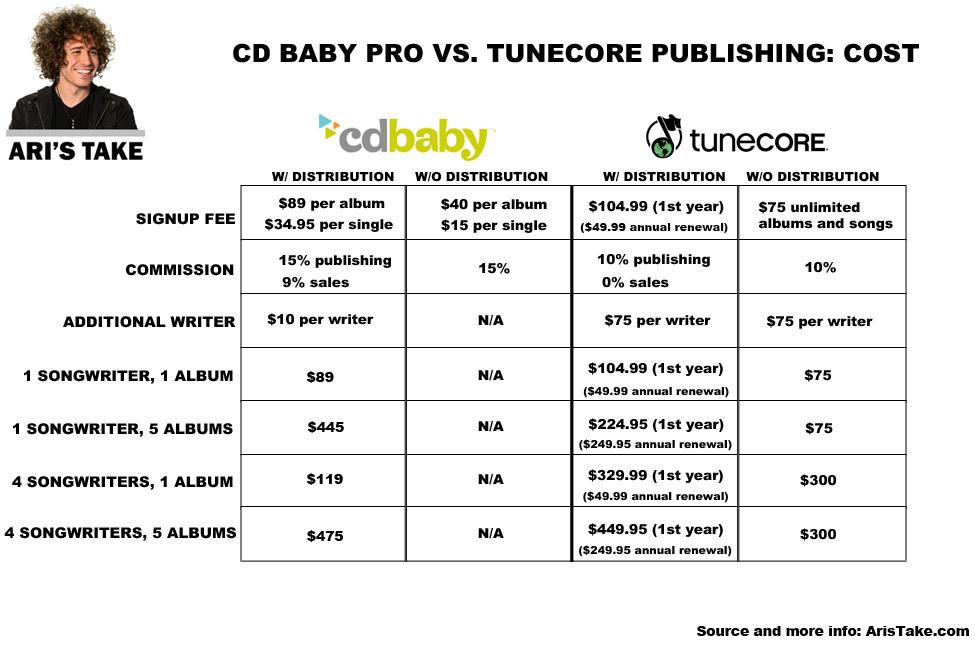
WINNER: No clear winner. Take a close look and decide what’s better for your purposes. Note, TuneCore takes a smaller percentage so it will be better in the long run if one of your songs explodes.
Just use for publishing NOT distribution?
TCP: Yes
CBP: No

Collect royalties for songs you don’t distribute?
If you co-write a song with someone and they release it on their album, you are still entitled to the publishing royalties. If someone covers your song and releases it, you’re still entitled to publishing royalties. Anytime there is a recording out there of a song you wrote (or co-wrote) you are entitled to publishing (songwriter) royalties.
TCP:
TCP will collect all your publishing royalties whether you release the song with them or not
CBP:
CDP will NOT collect any of your publishing royalties on songs you do not distribute with CD Baby.

Sign you up for a PRO?
If you’ve already signed up for a PRO, that’s fine. Both companies will register your songs with your PRO (if you haven’t done this already). If you have, that’s fine, they will just attach their name to these songs to make sure the publishing money goes to them. If you already have a “vanity” publishing company registered with your PRO, both CBP and TCP will override this and take over as your publisher. If you don’t know what a “vanity” publishing company is, don’t worry about it. You don’t need one if you sign up for TCP or CBP.
TCP:
TCP will register your songs with your PRO. If you aren’t signed up with a PRO initially they will default you to BMI. You will still need to go to the BMI website and signup as a songwriter.
CBP:
CBP will sign you up and register your songs with the PRO you choose.

International Collections of Mechanical Royalties:
The BIG BIG BIG point that both services are trying to get across: If you sell a download (for a song you wrote) on iTunes in the US, the mechanical royalty is built into the sale and you get that through your distribution service (TuneCore or CD Baby). Internationally IT IS NOT! Meaning all the iTunes sales (and Spotify streams) you’ve been making internationally, there is money owed to you that you have not yet received. And, up until now, you were not able to collect these (no indie songwriter could). The royalty rates internationally are about 9% per download (so like 9 cents an iTunes download) and about 1 cent a stream (but this varies tremendously per streaming service). If you have your sales reports do some quick math and figure out if it’s worth it to sign up.
Both companies claim they WILL get all the unclaimed money to you (that has been building up over the years). So theoretically your first check could be HUGE!
TCP:
Has direct relationships with most international markets to collect these royalties.
CBP:
Has direct relationships with most international markets to collect these royalties.
WINNER: No clear winner
International Collection of Performance Royalties
Your local PRO (in the US they are ASCAP, BMI and SESAC) can and does currently collect performance royalties from international PROs. BUT both TCP and CBP have built up their own relationships with these international PROs to get you more money faster. International PROs will no longer report your earned performance royalties to your local PRO (In the US it’s ASCAP, BMI and SESAC) but to either TCP or CBP directly. They do this so your local PRO doesn’t take a cut of the money coming in internationally. TCP and CBP are just trying to get this money to change fewer hands (and so they get a bigger cut).
**note not all international collection services are simply PROs. Some also collect mechanical royalties as well.
TCP:
Has direct relationships with most international markets.
CBP:
Has direct relationships with most international markets.
Winner: No clear winner
YouTube:
This is a VERY new frontier. Terms and agreements are being made and changed daily. Literally. But as it stands (uh, today), for a YouTube video there are 5 income streams that can potentially be generated from a video:
1) the streaming PERFORMANCE royalty for the song (collected by ASCAP, BMI, SEASAC or international PRO – for the songwriter)
2) the SYNCHRONIZATION royalty for the composition (only collected by a publisher LIKE TCP or CBP)
3) AD REVENUE earned for the sound recording (the artist who recorded the song – NOT the songwriter)
4) AD REVENUE earned for the composition
5) AD REVENUE earned for the content of the video for the CREATOR (you or some dude creating the video in iMovie with shitty graphics over your song). Currently video creators cannot collect ad revenue unless they own 100% of the content (this will probably change soon).
However, the amount that songwriters (not video creators) currently earn from YouTube streams is pitiful. Some say about $40 per million views.
Jamie mentioned that the rate currently looks like 20% goes to the composition and 80% to the sound recording.
If you wrote the song, recorded the song and created the video you should theoretically earn 5 different royalties.
If you setup your YouTube account for monetization you can collect ad revenue (but not the synchronization or sound recording royalties).
TCP:
TCP launched a partnership with INDmusic to collect ad revenue from YouTube videos in November 2013. If you signup with Tuncore distribution and TCP you can collect 100% of the revenue owed to you. If you just signup for TCP you can collect the publishing revenue owed. TCP takes their standard 10% commission for the publishing revenue and 20% for the sound recording revenue (if you used Tunecore distribution).
CBP:
So CBP doesn’t technically handle the YouTube monetization feature but their affiliate Rumblefish does. When you signup for CD Baby you can opt in to Rumblefish to handle some sync licensing. They CAN and DO place ads on user videos of your songs and get that money back to you (through Rumblefish). Kevin also mentioned “We actually deliver our catalog to YouTube and they create reference files and go out and reference against all of their videos.” CBP WILL collect the performance and mechanical royalties generated from ad revenue. However, they take 30% commission for this (to TCP’s 10%).

Artists covering your song needing to pay you mechanical royalties:
In the US, if you want to cover someone’s song, you must either purchase a compulsory mechanical license or report directly to the publisher of the song you’re covering (and pay them the statutory rate). Most people think the only way to do this is through Harry Fox Agency (HFA). They are the biggest company that licenses and most major publishers use HFA to administer these licenses. It currently costs 9.1 cents (in the US – and near that around the world) per unit to cover someone’s song. Meaning, if you sell 1000 downloads (of a song you didn’t write – like “I Knew You Were Trouble”) you must pay $91 for a compulsory mechanical license so the songwriter/publisher receives the proper mechanical royalties. HFA charges 1 cent per stream (up to 10,000 streams).
Both TCP and CBP use SongFile with Harry Fox Agency to grant compulsory mechanical licenses.
TCP:
If someone wants to cover your song they can use SongFile on hfa.com to get a compulsory mechanical license.
CBP:
If someone wants to cover your song they can use SongFile on hfa.com to get a compulsory mechanical license.
WINNER: No clear winner as both use the same service for this
Sync Licensing With CBP, TCP or Others (Exclusive Admin Rights)
**Updated 1/9/15: Both CD Baby (via Rumblefish) and TuneCore Publishing have in place licensing pitching services. They have both setup sites listing all of their songs where music supervisors can browse and find songs for their TV shows, movies, commercials, video games, etc. This is a nice thought. I’ve never heard of music supervisors actually doing this. If you have, please say so in the comments section.
Even if they’re not actively pitching your songs to music supervisors to get them placed on TV shows/movies/commercials etc, (they have thousands of songwriters), they still need to be able to collect your publishing royalties from around the world. They can’t have multiple publishing companies all claiming administration rights (or ownership) all hunting down the same royalties. Both CBP and TCP require exclusive administration rights (fair).
But, you can opt out of the CD Baby song licensing and get an exclusive licensing company to work with you. TuneCore requires an exclusive deal (therefore prohibiting you from working with a licensing company)** Update 1/9/15
HOWEVER, you can sign non-exclusive licensing agreements with other companies (I have a couple) if they retitle your songs. Meaning, if there’s a licensing company who is super stoked about your album and wants to ACTIVELY pitch it to music supervisors for film/TV/commercials, you can sign an agreement with them and they will change the title of your songs (from “Last Day” to “PH Last Day” or something – PH could stand for Placement House or whatever). This won’t interfere with either service. BTW most licensing companies take 50% of the sync fee and of the publishing royalties.
TCP:
TCP has an online database and pitching service for music supervisors IN HOUSE (in beta stage and not public – by invite only) to search and license TCP songs. They have 2 “creatives” who actively pitch music from the TCP catalog to music supervisors. Most indie artists don’t know how to negotiate these kinds of rates so TCP will negotiate you the best rate (remember it’s in their best interest to get the highest possible rate). If TCP DOES actually pitch you and gets a successful placement they take 20% (not 10%) of the publishing and sync fee. Then you get the rest.
Jamie did mention that they have secured multiple placements on TV shows, commercials and films and one placement they earned $13,000 for it.
CBP:
When you opt into Rumblefish when you signup for CD Baby, your songs get submitted to two sites: http://musiclicensingstore.com (for music supervisors) and http://friendlymusic.com (for users to use songs in photography videos and personal Vimeo/Facebook videos and such – not YouTube though). CBP won’t be actively pitching your songs, but has this system in place to negotiate on your behalf (Rumblefish).

Payment Reporting:
When will you actually get paid?
TCP:
45 days after the end of each calendar quarter (February 14, May 15, August 14, November 14). But the earliest you will receive money is 6 months after you sign up.
CBP:
About 100 days after the end of each calendar quarter (April 10, July 10, October 10, June 30). They say “On or before” these days.

Term (and ending the agreement):
Both guys mentioned that there’s a lot of work that goes into setting up all of the songs around the world (makes sense) so they really don’t want you to get out of the agreement in the first year while they are in the process of tracking down royalties and registering the songs (fair). However, both guys also said that if there are extraneous circumstances (like you get an offer for a $500,000 publishing deal) they’ll let you out. Jamie at TuneCore said: “We’ll make exceptions because I don’t want to ruin anyone’s career.” Once you get out, though, both companies will still most likely be receiving royalties to which they will still pay out (and take their commission) until your new publishing company has completely taken over all collection duties and notified all reporting agencies around the world.
TCP:
The term lasts 1 year and automatically renews year to year. To end your agreement, TCP requires an email at least 60 days in advance of the year anniversary of when you signed up. You are able to pull individual songs at any time by sending them a request here.
CBP:
The term lasts 1 year and automatically renews quarter to quarter (not year to year). You can opt out at any time by sending an email to CDBaby@CD Baby.com with a request to cancel and your termination will become effective 30 days after they get the email, BUT they have an “Exploitation Period” which lasts “until the later of (a) the end of the Term or (b) twelve (12) to eighteen (18) months after you submit the Composition to us.” Meaning if you signup today and decide to end your agreement tomorrow, CBP will still collect, take commission and pay out royalties to you for 12-18 months. If you signup today and end your agreement a year from today, CBP will still collect, take commission and pay out royalties to you for the rest of the term (90 more days (a calendar quarter) because their term renews quarter to quarter after the first year).

(because their term renews quarter to quarter not year to year)
Ownership:
Neither TCP nor CBP claims any ownership of your songs or publishing. When you opt out you are out!
Conclusion
WHEW! That is a lot of information. If you made it this far, you must be seriously weighing your options (good for you!) and about to sign up for one of these services (GREAT – I definitely recommend it). Your head hurts. I know. I’m sorry.
I tried to focus on what most DIY musicians would deem as the most important points. And what I deemed most important based on my knowledge of music publishing and the overall biz.
If you have any questions or anything to point out, please post it in the comments section and I’ll try to answer everyone!
**It’s worth noting, that you can signup for SongTrust directly regardless of who you choose to distribute your music with. They are a trusted and reliable admin publishing company. They operate CD Baby’s admin pub services, so their terms are very similar to CD Baby’s (without the distribution restriction).
**Update 5/26/13 – I’ve received many questions if it’s worth it to sign up for either service at all and if songwriters will make the signup fee back in royalties. What I can say is, if you’re selling internationally then it’s worth it. If you have high aspirations of a viral video, a TV placement, a growing fan base, then it’s worth it. If all you want to do is play local bars and sell your album to those in your time zone, then it’s not worth it. You never know when a song will catch and if it does you should grab these royalties. I have signed up for one of these services (not going to say which one) because I believe it’s worth it for me. I know I’ve sold a good amount internationally so I want that money collected! The biggest payday will come from mechanical royalty collections. You can check out your international sales reports from your distributor and do some quick math if you want to see if your first check will cover the sign up fee. Multiply the number of international downloads by 9 cents (9% per download is about the mechanical royalty rate everywhere). If it’s greater than $100 I say go for it.
**Update 11/24/13 – HOWEVER remember, TuneCore Publishing is exclusive, so if you’re looking to partner with another exclusive licensing company (to actively pitch you to music supervisors) then you will not be able to use TCP.
+CD Baby, Tunecore, Mondotunes, Ditto, DistroKid, Loudr, Zimbalam or Reverbnation







